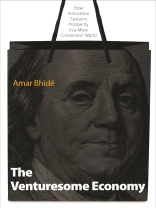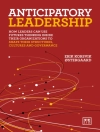Many warn that the next stage of globalization–the offshoring of research and development to China and India–threatens the foundations of Western prosperity. But in The Venturesome Economy, acclaimed business and economics scholar Amar Bhidé shows how wrong the doomsayers are.
Using extensive field studies on venture-capital-backed businesses to examine how technology really advances in modern economies, Bhidé explains why know-how developed abroad enhances–not diminishes–prosperity at home, and why trying to maintain the U.S. lead by subsidizing more research or training more scientists will do more harm than good.
When breakthrough ideas have no borders, a nation’s capacity to exploit cutting-edge research regardless of where it originates is crucial: ‘venturesome consumption’–the willingness and ability of businesses and consumers to effectively use products and technologies derived from scientific research–is far more important than having a share of such research. In fact, a venturesome economy benefits from an increase in research produced abroad: the success of Apple’s i Pod, for instance, owes much to technologies developed in Asia and Europe.
Many players–entrepreneurs, managers, financiers, salespersons, consumers, and not just a few brilliant scientists and engineers–have kept the United States at the forefront of the innovation game. As long as their venturesome spirit remains alive and well, advances abroad need not be feared. Read The Venturesome Economy and learn why–and see how we can keep it that way.
Про автора
Amar Bhidé is the Thomas Schmidheiny Professor at the Fletcher School of Law and Diplomacy, Tufts University, editor of
Capitalism and Society, member of the Council on Foreign Relations, and the author of
The Origin and Evolution of New Businesses. A former Mc Kinsey & Company consultant, Bhidé was educated at the Indian Institute of Technology and Harvard Business School, where he graduated as a Baker Scholar and later served as an associate professor.












